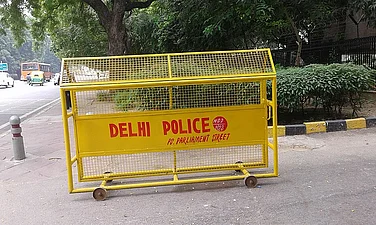The Centre on Tuesday announced its plans to install micro seismic observation systems at the gradually sinking Himalayan town of Joshimath, Uttarakhand. While addressing the 2-Day India-UK Workshop of Geosciences in New Delhi, Earth Sciences Minister Jitendra Singh announced that the observation systems will be set up by Wednesday. Singh emphasised on the the critical need for fundamental research on the physical processes which have caused the failure of the brittle layers beneath the crust and sub-crust n led to the crisis in Joshimath.
The British High Commissioner Alex Ellis; Wendy Matcham, Head, Natural Environment Research Council (NERC), UK Research and Innovation (UKRI); O P Mishra, Director, National Centre for Seismology and Sukanya Kumar, Acting Director, UK Research and Innovation India made their presence during the workshop.
Singh highlighted that human consequences of natural disasters in India were on a rise rapidly and stressed on the need to devise proper mitigation strategies at the workkshop. In the last two years, the Ministry of Earth Sciences had established 37 new seismological centres for extensive observation facilities, generating a huge database for outcome-oriented analytics. For improved real time data montoring and data collection, another 100 seismological centres will be opened across the country, Singh said.
Explaining that Joshimath falls under the highest seismic hazard Zone V as it experiences continuous seismogenic stresses, officials said that seismic microzonation study for the area would generate risk resilient parameters for safer dwellings and infrastructure. They also suggested that seismic energy generation due to micro-earthquakes may have weakened the strength of the rocks as Joshimath is located in the earthquake rupture zone of the 1999 Chamoli earthquake.
Other climatic factors in the now sinking town such as excessive precipitation, flow of water from mountains into massive cracks and fractures in the sub-surface rocks lead to widening of cracks and hastening the slip in rock material, the officials said.
In the past 50 years, scientific understanding of the processes behind disasters has grown immensely, and there is thus a need to further strengthen international collaborations like the Indo-UK initiative to fight such disasters in future, Singh said addressing the 2-Day India-UK Workshop.
(With PTI inputs)




















.png?w=200&auto=format%2Ccompress&fit=max)





